Maplestone Enhanced Care Collaborative Learning Centre

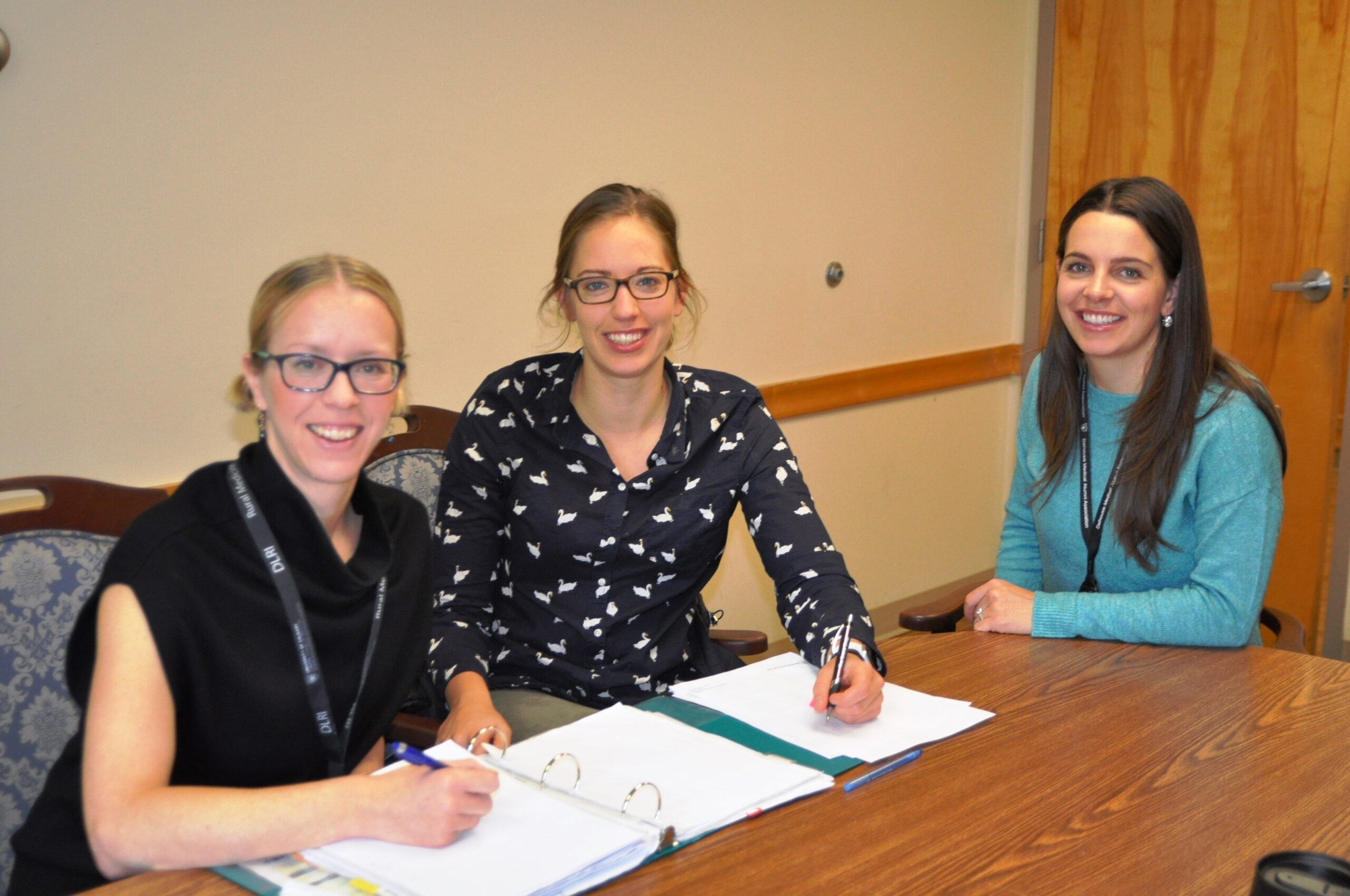
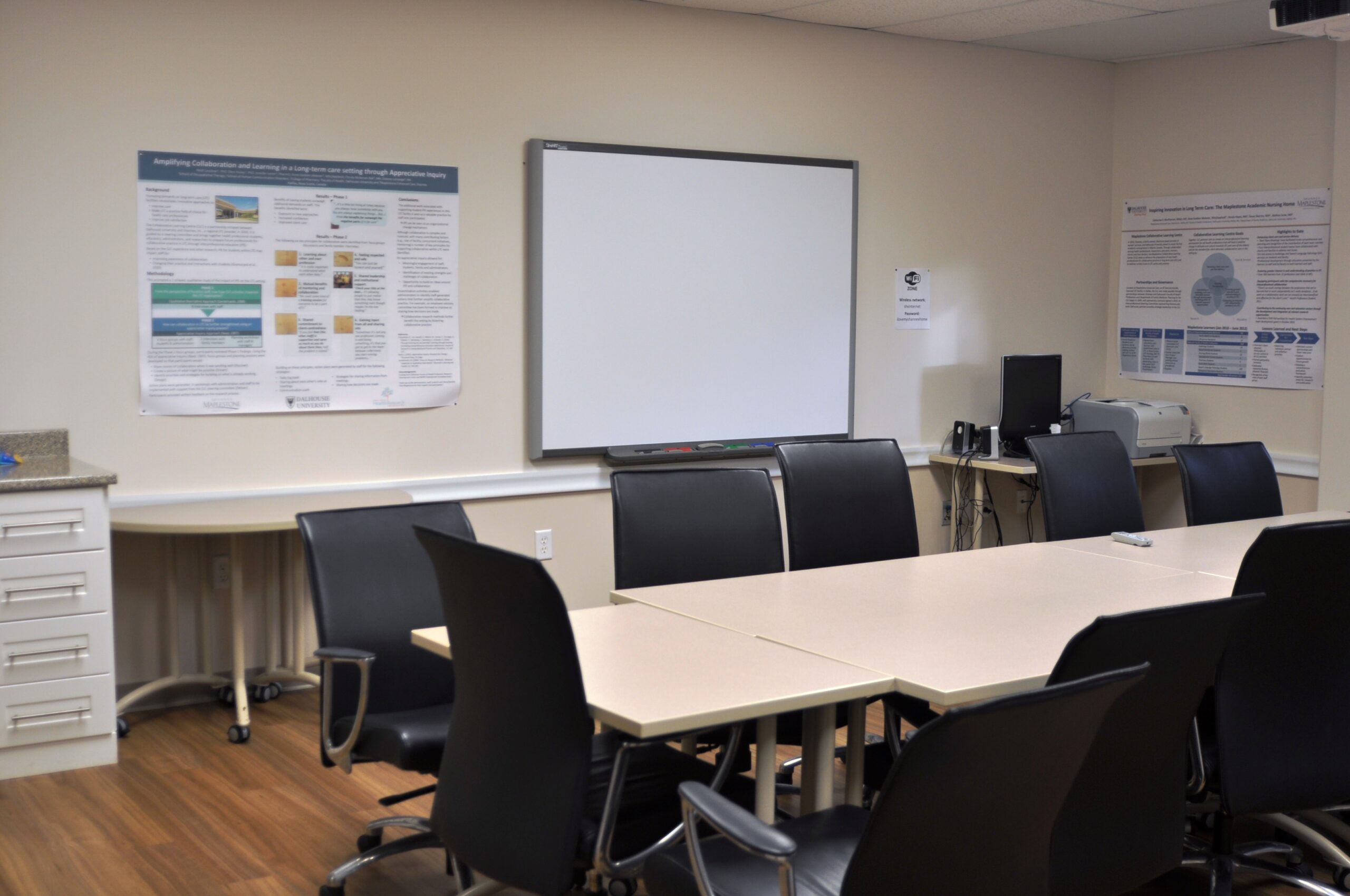
Collaborative Learning Centre on Aging
The Collaborative Learning Centre on Aging (CLCA) is a partnership between the Université de Moncton and Shannex’s Faubourg du Mascaret community.
Located at Faubourg du Mascaret, the CLCA provides two classrooms and simulation lab for professors and students to use as part of their learnings or research activities. The CLCA offers an interprofessional learning environment for healthcare professionals, research opportunities, internships in various disciplines (medicine, nursing, kinesiology, social work, nutrition, psychology, and others), and career opportunities for students in the province. It also provides an environment conducive to conducting research on various topics related to seniors and also assists with training “Faubourg du Mascaret” team members.
By raising awareness of aging, the culture of long term care, and the care and services offered to seniors and their families, the CLCA is also establishing strategic partnerships with other stakeholders in New Brunswick, including the Université de Moncton, the Centre de formation médicale du Nouveau-Brunswick (CFMNB), the Collège Communautaire du Nouveau-Brunswick (CCNB) and the University of New Brunswick.
Contact
Nouha Bouchiba
Collaborative Learning Centre on Aging Liaison Officer
506-378-3318
nbouchiba@shannex.com

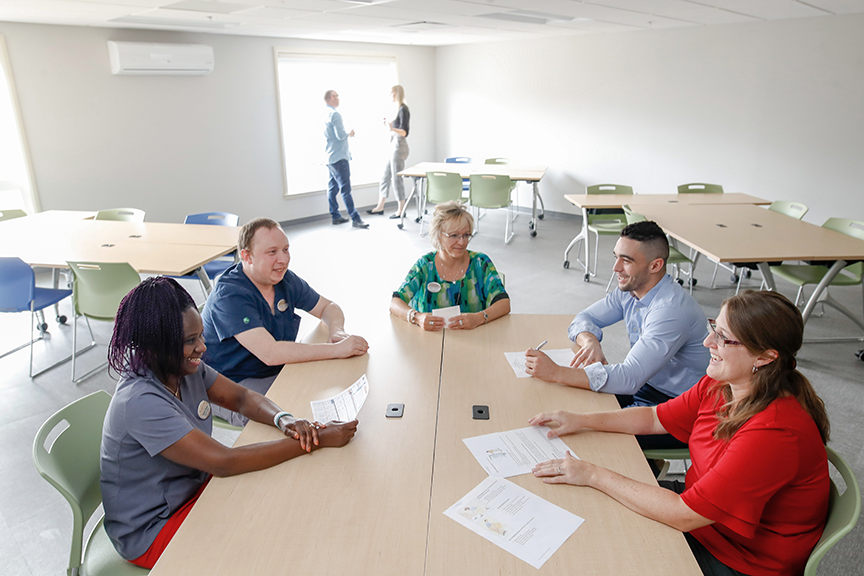
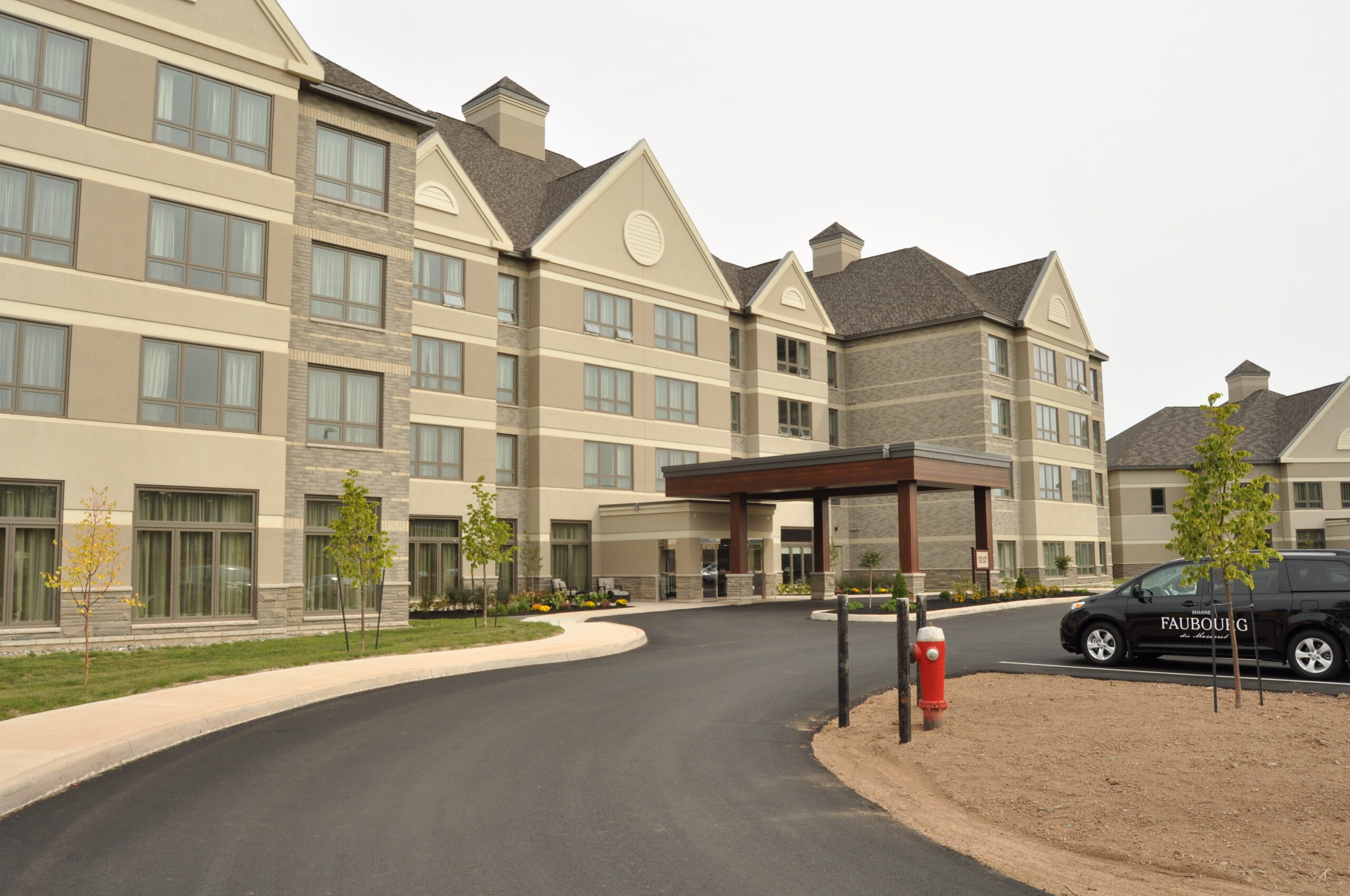
Completed Projects

Stand if you can
The aim of this study is to reduce the time spent sitting in order to maintain and improve the health and well-being of elderly people in assisted living facilities (retirement homes).
The objective of this project is to test the intervention to see if it is acceptable and feasible in three different Canadian provinces: NS, ON and NB. The intervention consists of various strategies to encourage and help older people to limit and interrupt long periods of sitting. The effectiveness of the program is determined by measuring the actual time spent sitting by residents before and after the implementation of the program. Numerous interviews are conducted with residents, their families, and staff to find out what people think of the strategies and how to make sure they work well for everyone.
Partners: Université de Moncton and the Université du Nouveau-Brunswick
Project Leads: Mr. Grant Handrigan of the Université de Moncton in New Brunswick, in collaboration with Ms. Danielle Bouchard of the Université du Nouveau-Brunswick

Promoting physical activity with augmented reality experiences
In this project, the effectiveness of the 2RaceWithMe device, which was designed to improve physical function and provide cognitive stimulation for older people, was evaluated.
Four 2RaceWithMe devices were installed to test the acceptability, use, and usability of 2RaceWithMe by nursing home residents.
This enjoyable experience is expected to help promote physical and cognitive activation and increase social engagement as participants interact with each other and/or research staff while using 2RaceWithMe.
Partners: Université de Moncton and the Centre de formation médicale du N.-B.
Project Lead: Jalila Jbilou

Brushing up on Mouth Care Program Evaluation
The Brushing Up on Mouth Care program (Brushing Up) is an evidence-based repository that was developed to support long-term care facilities by upholding a high standard of oral care. This project explored the oral health practices of LTC facilities across Nova Scotia and if and how the Brushing Up program was being used. To do so, key stakeholders in LTC, specifically staff members who are responsible for oral care in two health zones in Nova Scotia, participated in semi-structured interviews. The information about the use of Brushing Up in LTC facilities across Nova Scotia was acquired and was used to guide improvements to the Brushing Up program.
Partners: Dalhousie Faculty of Dentistry, Dalhousie Faculty of Health
Project Leads: Shauna Hachey MHS, RDH, Assistant Professor, Dalhousie School of Dentistry

Les Visionnaires (InterRAI)
This is a French-speaking benchmarking network for improving the quality of care.
The main objective was to improve care by measuring and understanding interRAI quality indicators within a collaborative community of practice in long-term care.
Our focus on the social model of care, volunteering, and innovative methods of care delivery has enabled us to work collaboratively with a number of different stakeholders to evaluate and improve care. It was therefore obvious to implement the InterRAI LTCF (Long Term Care Facility) evaluation and quality of life surveys on a provincial scale, with the aim of gathering data to improve care.
Partners: 10 French-language organizations in four provinces
Project Lead: NB Association of Nursing Homes

COVID-19 Research
The project aims to study:
- the effect of the pandemic on older people outside LTC;
- the effect of the pandemic and physical distance on families with a parent in LTC.
Partners: New Brunswick Innovation Foundation, NB Health Research Foundation, Université de Moncton
Project Lead: Suzanne Dupuis-Blanchard

Life Journal
An intergenerational project between students at the Centre de formation médicale du N.-B. and residents of Faubourg du Mascaret.
Students met with seniors to discuss and gather information about their lives, from early childhood to today. The aim of these meetings was to create informal intergenerational relationships and to set up a life journal for seniors.
Partner: Centre de formation médicale du N.-B.
Project Lead: Lise Duguay
Current Projects

Pivot Santé
An innovative environment for health promotion and disease prevention services for Francophone seniors in community settings.
The PSA aims to become a center of multidisciplinary expertise in health services that support seniors’ well-being, homecare, and quality of life.
Partner: Université de Moncton
Project Lead: Suzanne Dupuis-Blanchard

Life Journal
An intergenerational project between students at the Centre de formation médicale du N.-B. and residents of Faubourg du Mascaret.
Students met with seniors to discuss and gather information about their lives, from early childhood to today. The aim of these meetings was to create informal intergenerational relationships and to set up a life journal for seniors.
Partner: Centre de formation médicale du N.-B.
Project Lead: Lise Duguay

Virtual Reality Fall Prevention
The aim of this project is to evaluate virtual reality as a tool for improving functional and psychological risk factors for falls (an extension of the 2RaceWithMe project).
Partner: Centre de formation médicale du N.-B, UDEM.
Project Leads: Jalila Jbilou / Mark Chignell and Grant Harrison

Developing a theory-guided, evidence-based training program for rehabilitation providers working with residents with dementia in long-term care
The aim of this project is to develop a theory-guided, evidence-based training program for rehabilitation professionals (e.g., physiotherapists and occupational therapists) working in long-term care to support rehabilitation for residents with dementia. Our objectives are to: 1) identify barriers and facilitators to providing rehabilitation for long-term care residents with dementia; 2) Based on identified barriers and facilitators, the best available evidence (recent systematic review), and guided by behaviour change theory (i.e., Behaviour Change Wheel), develop a training program for rehabilitation providers (e.g., physiotherapists and occupational therapists) to support rehabilitation for long-term care residents with dementia. Our project will ensure rehabilitation providers are equipped to meet the needs of the growing population of long-term care residents with dementia and help improve quality of life in long-term care.
Partners: Dalhousie School of Physiotherapy, Research NS,
Project lead: Caitlin McArthur, School of Physiotherapy, Dalhousie University

Developing a data-informed care planning improvement intervention in long-term care
In this project, we aim to explore how the information collected during the admission process and throughout the stay of residents in long-term care (LTC) homes can be used to enhance their care. We are also interested in understanding the factors that either hinder or facilitate the use of this information in designing and providing their care. To accomplish this, we plan to conduct two rounds of interviews or focus group discussions with LTC residents, family caregivers, and staff members. Additionally, we will observe the care staff provides to LTC residents in your home. By involving all stakeholders, we hope to gather valuable insights and recommendations that can contribute to improving the quality of care in LTC homes. Our goal is to develop strategies that will help staff members to effectively use information to inform care decisions and facilitate person-centred care planning. We aim to provide practical and actionable recommendations that can be implemented to enhance the overall quality of care provided in LTC settings.
Partners: Canadian Institutes for Health Research; Maritime SPOR Support Unit; Dalhousie School of Physiotherapy
Project Lead: Dr Caitlin McArthur

Developing a data-informed care planning improvement intervention in long-term care
In this project, we aim to explore how the information collected during the admission process and throughout the stay of residents in long-term care (LTC) homes can be used to enhance their care. We are also interested in understanding the factors that either hinder or facilitate the use of this information in designing and providing their care. To accomplish this, we plan to conduct two rounds of interviews or focus group discussions with LTC residents, family caregivers, and staff members. Additionally, we will observe the care staff provides to LTC residents in your home. By involving all stakeholders, we hope to gather valuable insights and recommendations that can contribute to improving the quality of care in LTC homes. Our goal is to develop strategies that will help staff members effectively use information to inform care decisions and facilitate person-centred care planning. We aim to provide practical and actionable recommendations that can be implemented to enhance the overall quality of care provided in LTC settings.
Partners: Canadian Institutes for Health Research; Maritime SPOR Support Unit; Dalhousie School of Physiotherapy
Project Lead: Dr Caitlin McArthur
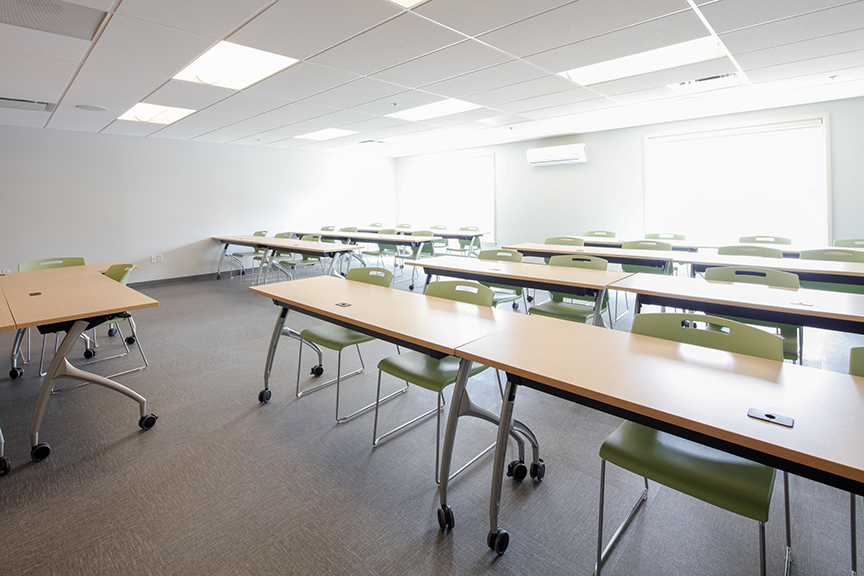
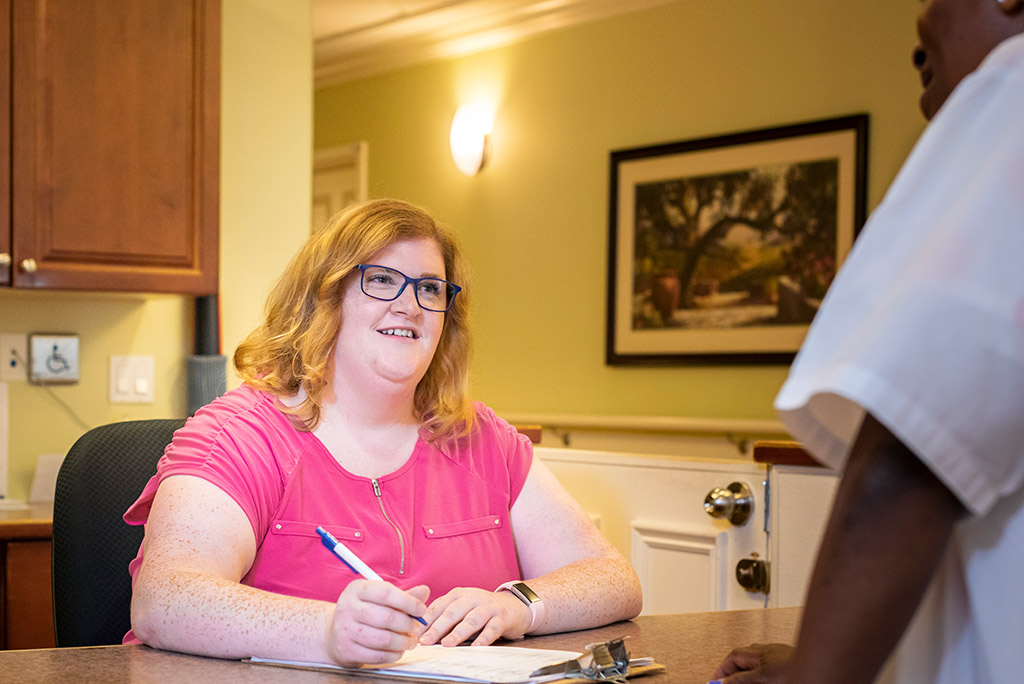
Social frailty among semi-autonomous seniors who have recently moved
The study aimed to understand the phenomenon of social frailty through interaction with a group of semi-autonomous seniors who had recently moved to a community for the elderly. The objectives were to:
Partners: New Brunswick Association of Nursing Homes, Association francophone des aînés du Nouveau-Brunswick and the Maritime SPOR Support Unit, Université de Moncton
Project Lead: Suzanne Dupuis-Blanchard